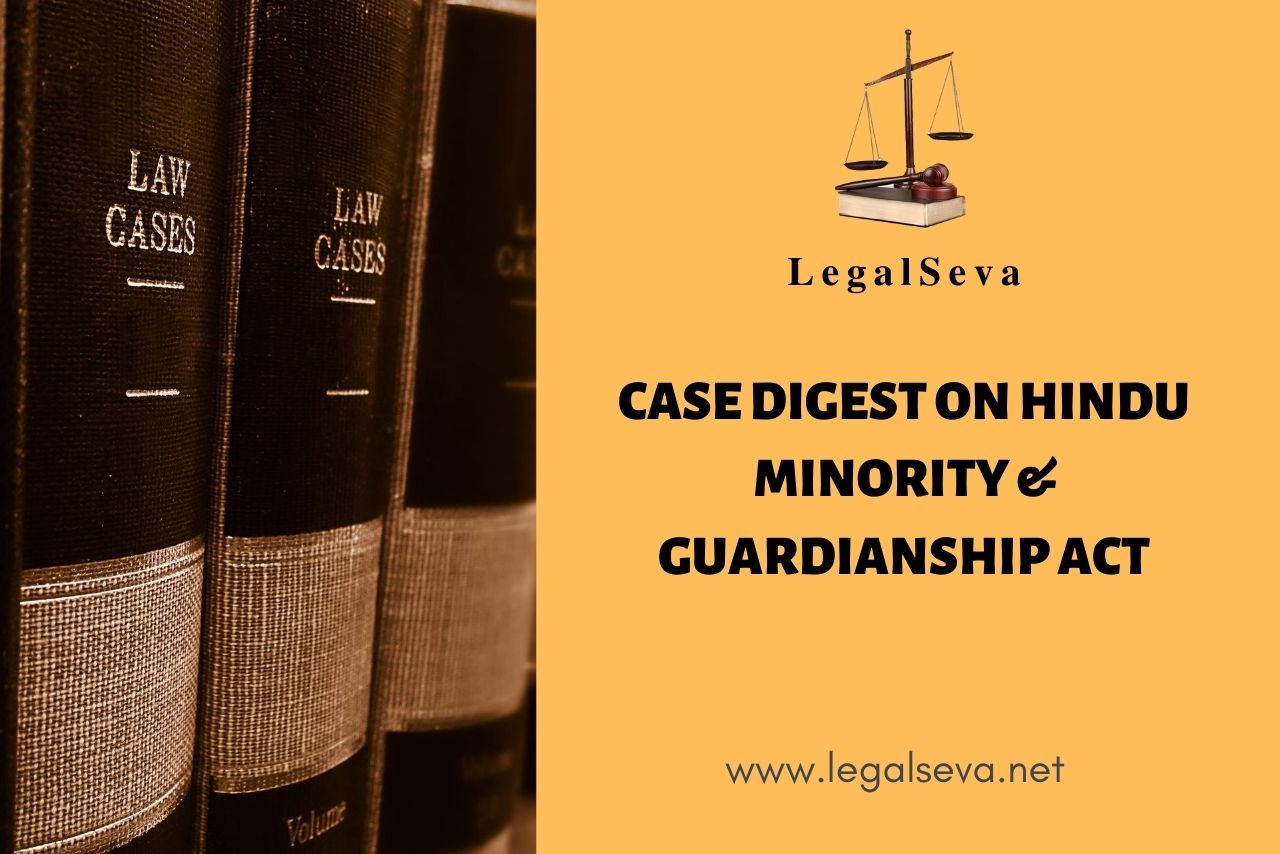Under Section 6 of the Hindu Minority and Guardianship Act, 1956, the natural guardianship of a legitimate child vests in the father. A mother can be natural guardian of her illegitimate children, but when it comes to her children begotten from a marriage, she can be their natural guardian only after the father.
Also Read- Custody Case in High Court Chandigarh
According to Section 6 the natural guardians of a Hindu minor, in respect of the minor’s person as well as in respect of the minor’s property (excluding his or her undivided interest in joint family property), are—
(a) in the case of a boy or an unmarried girl—the father, and after him, the mother: provided that the custody of a minor who has not completed the age of five years shall ordinarily be with the mother;
(b) in case of an illegitimate boy or an illegitimate unmarried girl—the mother, and after her, the father;
(c) in the case of a married girl—the husband: Provided that no person shall be entitled to act as the natural guardian of a minor under the provisions of this section—
(a) if he has ceased to be a Hindu, or
(b) if he has completely and finally renounced the world by becoming a hermit (vanaprastha) or an ascetic (yati or sanyasi).
Explanation.- In this section, the expressions” father” and” mother” do not include a step- father and a step- mother.
Also Read- Law Regarding Maintenance in India
Even if the father neglects to look after, or to discharge his obligations towards, the minor, or refuses to act natural guardian, the mother cannot be the natural guardian of the minor so long as the father is alive.
Merely because the father is not residing with the family, he does not cease to be the natural guardian. The natural guardian ceases to be so only under the two ground mentioned in the proviso to the section.
In such an events, the only course open to the mother is to take legal proceedings and obtain appropriate orders of the court to act as the guardian of the minor.
In a case where the mother and father had fallen out and were living separately and the minor daughter was under the care and protection of her mother (though her father was alive) the Supreme Court held that the mother should be considered as the natural guardian of the minor girl.
Also Read- Maintenance Free Legal Advice in Chandigarh Panchkula Mohali
CASE STUDY
Toshani Naik vs Subhranta Naik on 16 March, 2020
In the given case the petition is that the respondent (husband) had filed a divorce petition against the petitioner. The same was allowed. However, the appeal against the decree of divorce passed by the trial Court is pending before this court. Thereafter, the petitioner had filed an application under Section 6 of Hindu Minority and Guardianship Act for custody of the minor son. In that application, the evidence of the petitioner had already been completed, whereafter, the evidence of the respondent had started. However, before the cross- examination of witness of the respondent could be completed, the evidence of the respondent has been closed by order of the Court, thereby, denying the opportunity to the petitioner to cross-examine the witness(es) of the respondent.
Still further, it is submitted that the petitioner would complete the cross- examination of the said witness(es) if she is granted opportunity for that purpose. Hence, it is submitted that the order passed by the Court below deserve to be set aside.
Also Read- Types of Cases in District Sessions Court Chandigarh
Having heard the learned counsel and having perused the file, this Court finds that the petitioner has been granted several opportunities to cross-examine the witness(es). The record also shows that the petitioner has repeatedly changed the counsels. Therefore, the assessment of the Court below that the petitioner might be seeking time for cross-examination only, as the tactics for delaying the proceedings, is not wholly unjustified. However, the fact remains that it is the application filed by the petitioner only, which the trial Court is considering. Therefore, it would be in the interest of justice if she is granted one more effective opportunity to cross- examine the witness(s) of the respondent however, by putting her to some appropriate financial burden.
Also Read- Fake Divorce to Marry NRI Case in India
In view of the above, the impugned order is quashed and the present petition is disposed of with a direction to the trial Court to grant one effective opportunity to the petitioner to cross-examine the witness(es) of the respondent subject to payment of Rs.2,000 as cost. The cost is ordered to 2 of 3 be deposited with the District Legal Services Authority, Gurugram.
However, it is clarified that the petitioner shall be granted opportunity to cross-examine the witness(es) of the respondent only after she produces before the trial Court, the receipt of having deposited the cost, as ordered above.
Also Read- Adoption of a Child in Chandigarh Panchkula Mohali
For case specific advice, please contact child custody lawyers advocates in Chandigarh Panchkula Mohali Zirakpur Derabassi Kharar Baltana Mullanpur etc.
This post is written by Sneha. More on 99888-17966.
